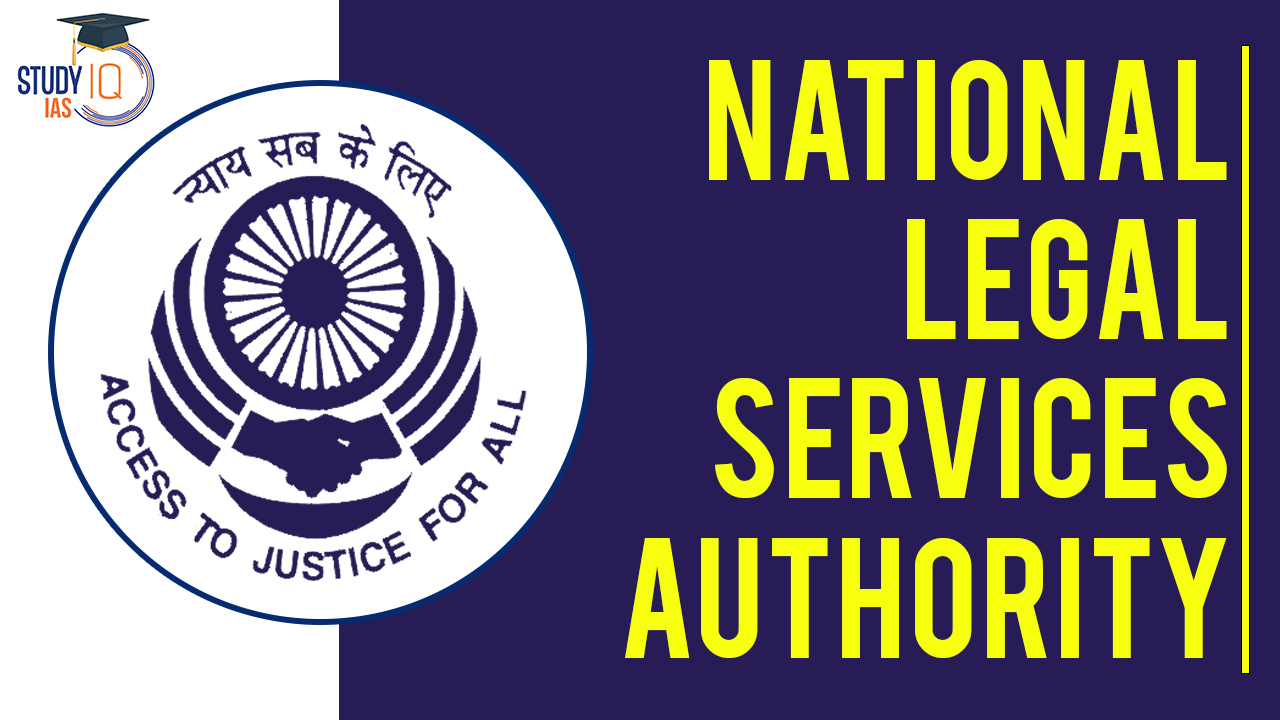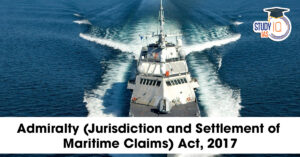Table of Contents
National Legal Services Authority
The Legal Services Authorities Act of 1987 was created by the Indian government based on Article 39-A of the Constitution and recommendations from various committees. It took effect on November 9, 1995, after amendments in 1994. This Act provides legal aid to economically weaker, backward, and disabled individuals. The legal aid scheme was first introduced in 1971 by Justice P.N. Bhagawati. The National Legal Services Authority was established on December 5, 1995, by Justice R.N. Mishra to implement this Act effectively.
Legal aid includes support for illiterate, poor, and disabled individuals who struggle to access the courts. Anyone eligible under Section 12 of the Act can receive assistance. November 9, 2009, was declared National Legal Service Day, marking the Act’s enforcement. The Act ensures that no one is denied justice due to economic or disability barriers and aims to educate the public about legal rights, provide free legal aid, and establish Lok Adalats for dispute resolution. Lok Adalats have significantly improved the justice delivery system, helping to address the backlog of pending cases and offering alternative solutions for litigants.
National Legal Services Authority which is covered in this article is covered in the Indian Polity and Governance of UPSC Syllabus. Students can also go for UPSC Mock Test to get more accuracy in their preparations.
Understand the National Legal Services Authority
The National Legal Services Authority (NALSA) was created in 1995 under the Legal Services Authorities Act of 1987 to supervise and assess the effectiveness of legal aid programmes and to develop the rules and regulations for providing legal services in compliance with the Act. In order to support the implementation of legal aid ideas and systems, it also provides financing and grants to nonprofit organizations and state legal services agencies. The Executive Chairman of the NALSA is the Senior Most Honorable Judge of the Supreme Court of India, who is also the Chief Justice of India (CJI).
Analysis of the Legal Services Authority Act, 1987
Types of Services Provided:
- Free Legal Awareness: The Act aims to educate the public about laws and government schemes. Authorities organize legal camps and set up legal aid centers where people can get advice and support regarding their legal issues.
- Free Legal Aid Counsel: Individuals who cannot afford a lawyer can receive help from free legal aid attorneys. This support helps ensure that everyone has access to justice without financial burden.
- Lok Adalats: Introduced in Gujarat on March 14, 1982, Lok Adalats efficiently resolve disputes like labor issues, family matters, and bank recoveries. They provide an alternative way to settle cases outside of regular court, which helps reduce the backlog of cases. Lok Adalats are made up of both lawyers and non-lawyers to better understand and mediate disputes, aiming for mutually agreeable solutions.
Need of National Legal Services Authority
The National Legal Services Authority strives to uphold the Preambular commitment to guarantee social, economic, and political justice to all citizens. The Constitution’s Articles 14 and 22(1) require the State to guarantee equality before the law. Section 39 A It seeks to promote justice based on equal opportunity by offering free legal help to the society’s impoverished and weaker segments.
National Legal Services Authority: Aim
It works to provide competent legal representation, legal literacy, and knowledge to the society’s excluded and marginalized groups in order to give them greater legal authority. By bridging the gap between the legally accessible benefits and the entitled beneficiaries, it seeks to formally empower the society’s marginalized and excluded groups. It intends to improve the Lok Adalat system and other Alternative Dispute Resolution methods to provide for informal, quick, affordable, and efficient conflict settlement and lessen the burden of adjudication on the overworked judicial system.
Objectives of National Legal Services Authority
Article 39A of the Indian Constitution ensures that all citizens receive free legal aid and equal access to justice, so no one is denied justice due to financial issues or other disadvantages. The Legal Services Authorities Act, 1987, was created to fulfill this goal, focusing on providing free and quality legal services to the weaker sections of society.
Functions of National Legal Services Authority
National Legal Service Authority:
In India, legal services operate at three levels: central, state, and district.
- The central level includes the National Legal Services Authority (NALSA) and the Supreme Court Legal Services Committee (SCLSC).
- The state level features the State Legal Services Authority (SLSA) and the High Court Legal Services Committee (HCLSC), along with District Legal Services Authorities (DLSA).
- The Taluk Legal Services Committee is covered under Sections 11A and 11B of the Legal Services Authority Act.
All these authorities share common functions, which can be grouped into two categories: pre-litigation and post-litigation services.
- Pre-litigation services focus on prevention, providing legal awareness, camps, advice, and education.
- Post-litigation services ensure free representation in court and assistance with related expenses.
| Members of NALSA | Members of SCLSC |
|
|
Functions of the Central Authority
- Establish policies and principles to implement the Legal Services Act.
- Create cost-effective schemes for providing legal aid to the poor.
- Allocate funds to State and District authorities.
- Organize Legal Aid camps in rural and slum areas.
- Promote research in legal aid, focusing on assistance for the poor.
- Ensure fulfillment of fundamental duties under Part IV-A of the Constitution.
- Collaborate with the Bar Council of India to develop clinical legal education programs.
- Spread legal literacy and awareness, especially among weaker sections of society, and support grassroots social welfare institutions.
State Legal Service Authority:
| Members of SLSA | Members of HCLSC |
|
|
Functions
The state authority must follow directions from the Central authority. It provides legal services and organizes Lok Adalats. Its other functions include:
- Offering legal services to eligible individuals.
- Conducting Lok Adalats for all cases.
- Implementing preventive and strategic legal aid programs.
- Performing additional tasks assigned by the Central authority as needed.
Challenges faced by National Legal Services Authority
Only 15 million people have benefited from legal aid services since 1995, according to the India Justice Report 2019, despite though more than 80% of the 1.25 billion people living there are eligible. The 2019 India Justice Report made note of the problem that lawyers lack the necessary training to offer the public satisfactory remedies. The functioning of Legal Aid Services is significantly hampered by poor financial management and responsibility, insufficient performance monitoring, and a lack of tools for measuring customer satisfaction.
2 254 sub-divisional/taluka legal services committees and 664 district legal services authorities (DLSAs) were constituted throughout districts in 2018. On the other hand, DLSAs have not yet been established in all of Tripura, West Bengal, Telangana, Chhattisgarh, Gujarat, or Uttar Pradesh’s judicial districts. The gender breakdown among panel solicitors is far less positive, with only 18% of them being women.
National Legal Services Authority UPSC
Raising awareness of legal issues, setting up Lok Adalats, holding legal assistance clinics, and other activities are among the goals of National Legal Services Day. To commemorate Legal Services Day and raise people’s awareness of their legal rights, all of this is being done. Students can read all the details related to UPSC by visiting the official website of StudyIQ UPSC Online Coaching.


 Admiralty (Jurisdiction and Settlement o...
Admiralty (Jurisdiction and Settlement o...
 Enemy Property Act in India, Background ...
Enemy Property Act in India, Background ...
 Phone-tapping in India, Legal Framework ...
Phone-tapping in India, Legal Framework ...





















